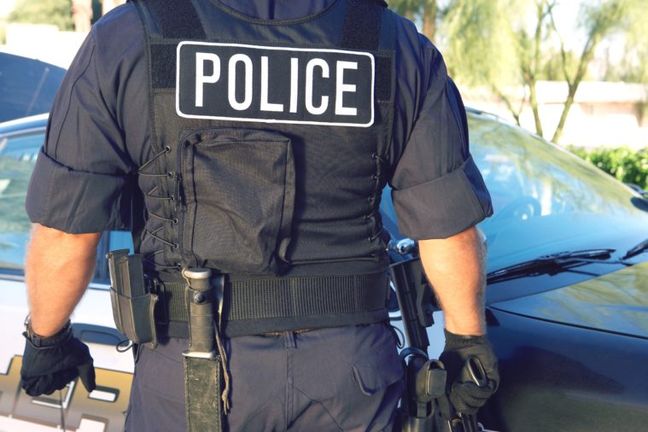In a recent ruling out of Nevada involving a case in which a plaintiff alleged bad faith, a judge opined a bad faith allegation did not survive Rule 12(b)(6) scrutiny. Rule 12(b)(6) pertains to a pre-trial motion for “failure to state a claim upon which relief can be granted.”[1] In Sahinov v. Geico Advantage Ins. Co., the court deemed it “difficult for the court to sufficiently analyze whether one party was acting in bad faith” based on the details provided.
Plaintiff was involved in a car accident in 2019 which a nonparty to the suit was fully responsible for. Plaintiff and the nonparty settled for $25,000. Plaintiff was insured by Geico and had a UIM policy with a cap of $100,000. Plaintiff’s injuries cost him over $200,000 in medical care.
Plaintiff and Geico negotiated over the $100,000 UIM coverage and did not reach a resolution. Plaintiff believed he was eligible for the full payout of $100,000, while Geico argued he was not. This negotiation lasted a few years, from 2019 until 2021. Based on their extended negotiations and Geico’s failure to pay the amount plaintiff believed he was owed, plaintiff sued Geico, alleging: (1) breach of contract, (2) breach of implied covenant of good faith and fair dealing, (3) bad faith, and (4) violation of Nevada’s Unfair Claims Practices Act under Nevada Revised Statute § 686A.310.[2]
Geico filed a partial motion to dismiss based on plaintiff’s complaint. The court reviewed the information before it and noted there were issues with plaintiff’s pleading warranting dismissal of multiple claims, including bad faith. To succeed on a bad faith claim in Nevada, one of the elements is the insurer denied the claim “without any reasonable basis.” A plaintiff can satisfy this element by showing “the insurer failed to conduct a thorough investigation.”[3] Conversely, a bad faith claim cannot succeed if “the insurer shows there was a genuine dispute as to coverage.”
In the Sahinov case, plaintiff alleged Geico had all the necessary medical documents about plaintiff’s injuries, even hired an investigator who, among other activities, conducted a recorded interview, but alleged Geico’s activities only amounted to a “self-serving” investigation. On the bad faith claim, the court stated, “This conclusory allegation does not rise above the Twombly/Iqbal pleading threshold.”[4] The court also pointed out plaintiff failed to deliver any concrete numbers to the court, stating that, after negotiations, Geico offered him “extremely less than the claim is worth.”[5]
Other claims in plaintiff’s argument did not survive judicial scrutiny, including breach of the implied covenant of good faith and fair dealing, which cannot be based on the same actions supporting a breach of contract claim in the same suit. In dismissing the claim, the court explained: [b]ecause [plaintiff] relies on the same allegations for his implied covenant and contract claims—and does not adequately allege literal compliance[6] with the contractual terms required for a breach of implied covenant—[plaintiff] fails to state a claim upon which relief can be granted.”
Rule 12(b)(6) motions to dismiss arise early in lawsuits, and when successful, can streamline the case, encourage settlement, or even result in resolution in whole or in part before parties proceed into discovery. This can drastically change the dynamics in a case and for this reason, Rule 12(b)(6) motions can be a very useful tool for the defense bar.
[1] Federal Rule of Civil Procedure 12(b)(6).
[2] Sahinov v. GEICO Advantage Ins. Co., 221CV919JCMVCF, 2021 WL 4954311, at *4 (D. Nev. Oct. 25, 2021).
[3] Feldman v. Allstate Ins. Co., 322 F.3d 660, 669 (9th Cir. 2003).
[4] A complaint must have plausible factual allegations that cover “all the material elements necessary to sustain recovery under some viable legal theory” and not be merely “labels and conclusions or a restatement of the elements of a cause of action. Sahinov, 2021 WL 4954311 at *1 (citing Bell Atl. Corp. v. Twombly, 550 U.S. 544, 562 (2007) and Ashcroft v. Iqbal, 556 U.S. 662, 678 (2009)).
[5] Id., citing (ECF No. 8 at 3-4).
[6] In other words, a defendant must have complied with the letter of the contract but violated or contervened the spirit of the contract.

 Author: Christopher Lund
Author: Christopher Lund
 Editor: Grace Shuman
Editor: Grace Shuman
 Cannabis Workers Allege Quota to Trim 4 Pounds a Day Violates the California Labor Code
Cannabis Workers Allege Quota to Trim 4 Pounds a Day Violates the California Labor Code
 The Ninth Circuit Reminds Us: Every Word Matters
The Ninth Circuit Reminds Us: Every Word Matters
 NO WAY, PRO SE! The Consequences of Abusing the Judicial System as a Pro Se Litigant in Colorado
NO WAY, PRO SE! The Consequences of Abusing the Judicial System as a Pro Se Litigant in Colorado
 Victim of Financial Mismanagement or Unlawful Retaliation? New Jersey City University Program Founder Claims School Retaliated After Reporting Alleged Sexual Harassment
Victim of Financial Mismanagement or Unlawful Retaliation? New Jersey City University Program Founder Claims School Retaliated After Reporting Alleged Sexual Harassment
 “Real Housewives” Gets a Reality Check
“Real Housewives” Gets a Reality Check
 Missing a Chapter: Insufficiency of Expert Deposition Testimony in Medical Malpractice Litigation
Missing a Chapter: Insufficiency of Expert Deposition Testimony in Medical Malpractice Litigation
 Crash Course: Why Summary Judgment Misses the Mark in Illinois Multi-Cause Limousine Crash Collision
Crash Course: Why Summary Judgment Misses the Mark in Illinois Multi-Cause Limousine Crash Collision
 Bitter Truths: Lead, Cadmium, and Defective Pleadings in California Chocolate Class Action
Bitter Truths: Lead, Cadmium, and Defective Pleadings in California Chocolate Class Action
 The Law of Unintended Consequences: Including Insurance Brokers in Litigation Strategy Communication May Waive the Attorney-Client Privilege
The Law of Unintended Consequences: Including Insurance Brokers in Litigation Strategy Communication May Waive the Attorney-Client Privilege
 Defenses Raised in an Answer Can Be Waived if Not Timely Reaffirmed in Discovery
Defenses Raised in an Answer Can Be Waived if Not Timely Reaffirmed in Discovery
 Nevada Court of Appeals Refuses to Define Breach of the Peace for Self-Help Repossession
Nevada Court of Appeals Refuses to Define Breach of the Peace for Self-Help Repossession
 Defendants Entitled to Attorney Fees as Prevailing Party in Voluntary Dismissal Cases Under Certain Circumstances
Defendants Entitled to Attorney Fees as Prevailing Party in Voluntary Dismissal Cases Under Certain Circumstances
 Nevada Limits Access to Police Body Camera Footage
Nevada Limits Access to Police Body Camera Footage
 Nevada Clarifies Exceptions to the American Rule of Attorney Fees
Nevada Clarifies Exceptions to the American Rule of Attorney Fees
 Actual Notice and Mailing Checks in Nevada
Actual Notice and Mailing Checks in Nevada
 Jury Demand within Complaint is Insufficient in Nevada
Jury Demand within Complaint is Insufficient in Nevada